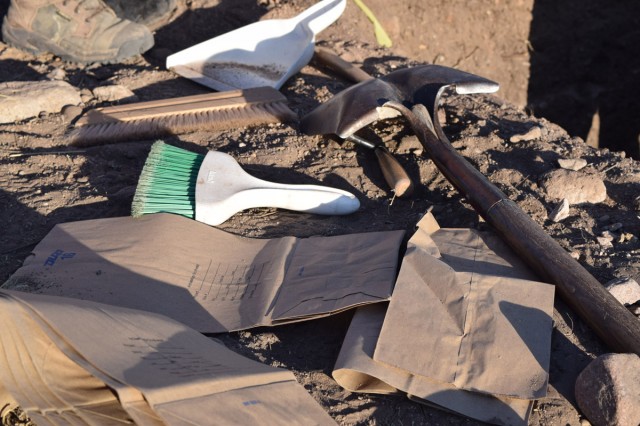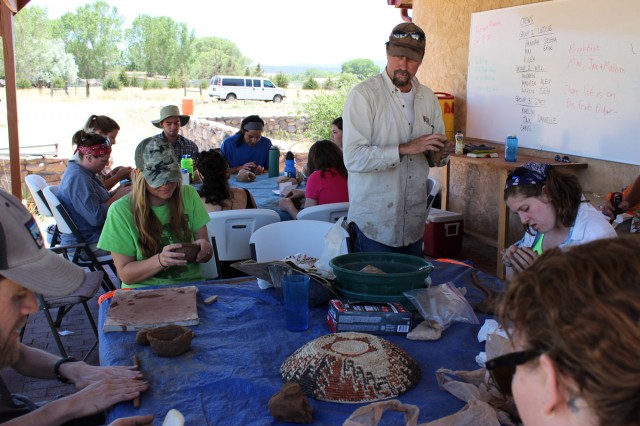- Home
- >
- Preservation Archaeology Blog
- >
- Archaeology and You
Kaelyn Olson, Preservation Archaeology Field School Student
One of the strangest things about my first time in the Southwest is being surrounded by experienced graduate students and archaeological professionals. Initially, I felt as if I was completely out of my league. They spoke in code, using terms like, “sherds,” “lithics,” and “screens,” and the only part I understood was “dig.” They seemed like a group wholly apart from me for a few days.
As time progressed, however, it became clear how important the diverse backgrounds of the participants contributed to the group’s understanding of what we were looking at. A geologist contributed information regarding where all those arrowheads were coming from. A carpenter knew how deep the postholes had to be in a room block. A rancher knew of the digging and bulldozing that happened on the land in the past. A woman who loves to garden and hates the horned caterpillars she finds on her plants challenged interpretations of caterpillars and horned serpents in Mimbres art. Archaeology is not an endeavor that exists purely in academic halls or in Indiana Jones movies—it exists around, in, and for communities.

At the same time that archaeologists seek to learn from other professionals, including ranchers, farmers, academics, and others, the Preservation Archaeology approach calls them to service. The cultural and historical perspectives given by archaeology are discussed in legislative halls and schools. But what does archaeology mean for an individual? How does a rancher benefit from archaeology? An outdoor enthusiast? A city office worker? These are also questions that must be addressed by archaeologists, because the topic of their research and the social context in which they do it often take place in the same spatial context. Does it benefit farmers to know the structure and location of ancient irrigation canals beneath their fields? These may alter subterranean water flow and plant growth. Does it help a lover of the outdoors to know about past changes in the flow of the rivers they kayak? This affects river location, depths, and riverine changes in the future. Does it help an office manager to know about cultural adaptations to hot climates? It may help to increase staff efficiency and safety.
Archaeology is not the work of academics in ivory towers. It is a living, breathing field that touches the past and the present. The next time you pass an excavation, stop and ask questions. The archaeologists will have much to share, and so might you.

2 thoughts on “Archaeology and You”
Comments are closed.
Explore the News
-
Join Today
Keep up with the latest discoveries in southwestern archaeology. Join today, and receive Archaeology Southwest Magazine, among other member benefits.
This is absolutely WONDERFUL! Thank you, Kaelyn!
Beautifully written! I hope to use thus in my courses!